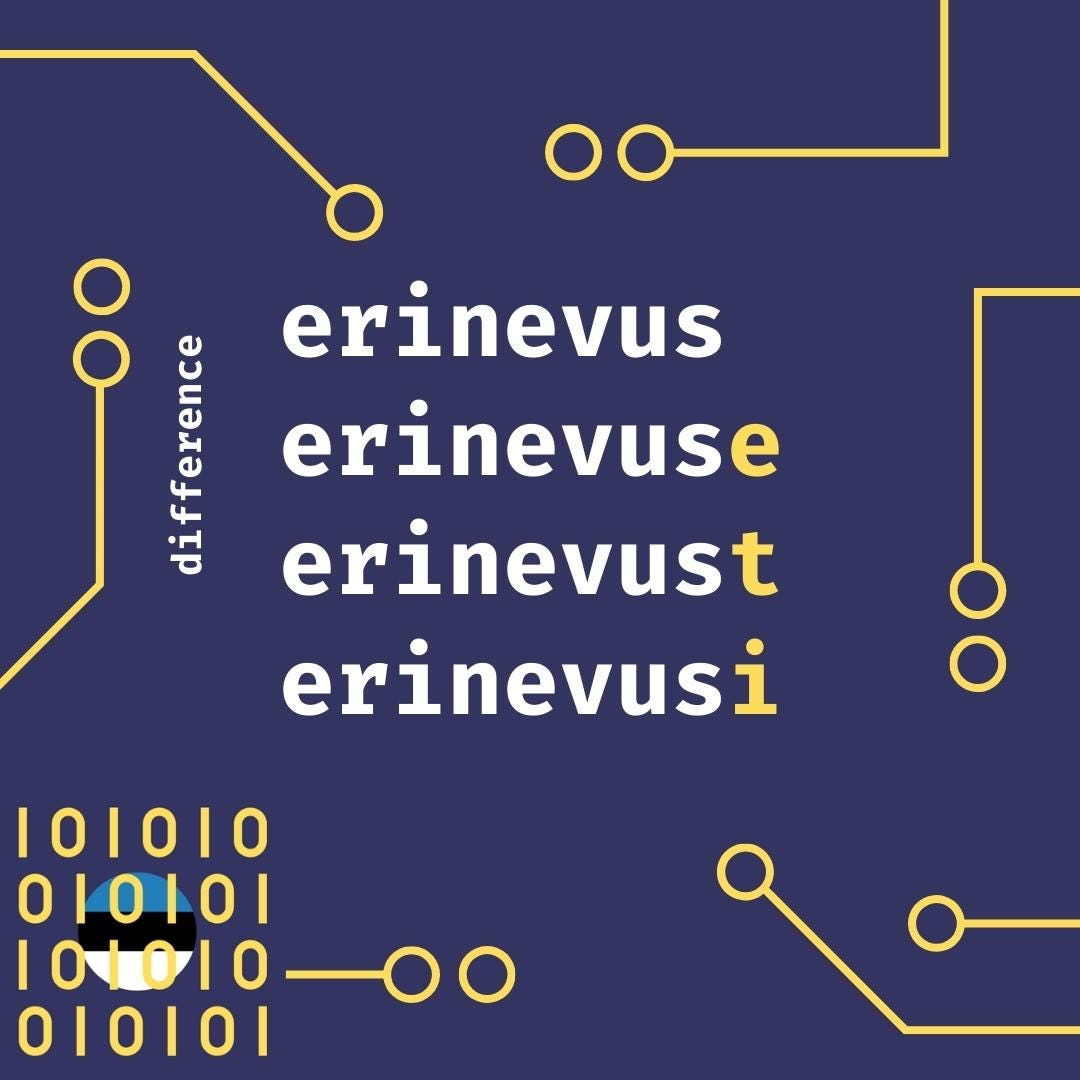Vocab: erinevus
difference
difference, disparity, dissimilarity
Building blocks
erinev- different (adjective)
-us - a noun-forming ending
When adding -us to an adjective, the noun that is created can express one of three things, in this case, it expresses a attribute (attribute of being different).
Looking at where the noun came from, we have to break down the word further into: eri - separate, distinct. This word is derived from Proto-Indo-Irainian: er - loose, detached
How to use it
Whose differences we are talking about are expressed in the Genitive case (second base form).
If we are talking about differences between two subjects/objects we use the genitive case + vahel (between). For example: erinevused kasside (Gen Pl) ja koerte (Gen Pl) vahel - differences between cats and dogs.
Examples
Koolid peavad arvestama põlvkondlike erinevustega
Literally: “Schools must count generational differences”
Idiomatically: “Schools must take into consideration the generational differences”
Koolid - Noun - Nom Pl, "Schools"
peavad - Verb - 3P Present Pl, "must"
arvestama - Verb - ma-Infinitive, "count"
põlvkondlike - Noun - Gen Pl, "generational"
erinevustega - Noun - Comitative Pl, "differences"Meie vahel on liiga palju erinevusi
Literally: “Us between there is too many differences”
Idiomatically: “There are too many differences between us”
Meie - Pronoun - Gen Pl, "Us"
vahel - Adverb, "between"
on - Verb - 3P Present Sg, "there is"
liiga - Adverb, "too"
palju - Adverb, "many"
erinevusi - Noun - Part Pl, "differences"

